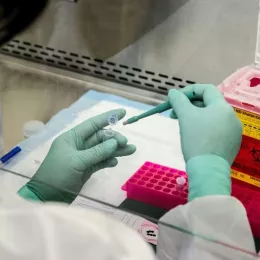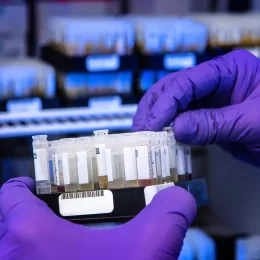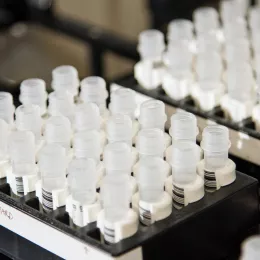Peter's Memo: Can you trust that lab-developed test?
This content is free. Because CSPI takes no corporate or government donations, we rely on supporters like you to fuel our content. Donate now. |
Lab tests to see if you have ovarian cancer or Lyme disease, to predict your risk of breast cancer, or to see how well you’ll respond to a treatment for leukemia or melanoma. Those were some of the inaccurate, unreliable, or unproven lab-developed tests (LDTs) that I wrote about in a 2015 report when I was an associate commissioner at the Food and Drug Administration.
When the FDA began regulating medical devices (which include LDTs) in the 1970s, the tests were simple and used on few patients. But LDTs are now used to diagnose or determine treatment for widespread, often-deadly diseases like cancer and Alzheimer’s.
Why faulty lab-developed tests can cause harm
For example, prenatal screening tests for some rare genetic disorders in a fetus are more often wrong than right, the New York Times reported in 2022. In at least one case reported by the Times, test results led a woman to needlessly terminate her pregnancy.
What’s more, false-negative results on early Covid tests no doubt led some people who assumed they weren’t infected to unknowingly spread the virus to others.
And the (now-defunct) company Theranos falsely claimed that its LDTs could diagnose diabetes, cancer, and other diseases using blood from a single finger prick!
How we’re pushing for stronger standards for lab-developed tests
Nutrition Action’s publisher—the Center for Science in the Public Interest—has led the charge to make sure that LDTs deliver on their promises. In 2022, we urged Congress to pass the VALID Act, which would have affirmed the FDA’s authority to regulate LDTs and prioritized tests with the highest stakes for the public’s health.
When the bill failed, CSPI led a coalition to pressure the White House to advance the FDA’s own proposal to regulate LDTs. In May, the administration came through.

The FDA issued a final rule clarifying that it will treat LDTs like other medical devices, which must be safe and effective, with a four-year phase-in. While the rule isn’t perfect, it’s a major win.
The FDA plans to start by making sure that patients can rely on those LDTs that are used for the most critical healthcare decisions. And the agency will require companies to register their LDTs so that it can identify the worst offenders.
Despite this victory, our work is far from done. Threats to the FDA’s rule lurk in Congress and the courts. In fact, the American Clinical Laboratory Association (which represents the leading labs) has already sued the FDA. Stay tuned.
More on lab-developed tests
Can you trust that lab-developed test? Here’s what to know
Government Accountability
By M.M. Bailey

FDA’s Laboratory-Developed Tests Final Rule: District Court Amicus Brief
Litigation

Laboratory-developed tests: FDA moves to close loophole
Government Accountability

FDA finalizes much-needed rule to regulate laboratory-developed tests
Government Accountability

House panel to discuss FDA proposal to regulate lab-developed tests
Government Accountability


